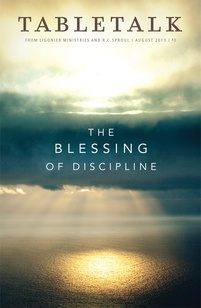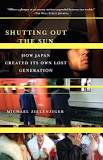We have two different types of choirs with very different repertoire. The gospel choirs sing . . .well . . . gospel music. I’ll write about gospel in a later post. The other choir we lead sings more traditional fare like Bach or Handel, and sometimes we sing something completely different like vocal jazz. I usually ask myself three questions when choosing pieces.
1. Do I like the piece? If I’m not thrilled with the song, the choir will know, and that will color their opinion of the piece.
2. Can the choir sing it? Singing ability and experience as well as how many singers there are in each section help me determine this. If we only have 3 basses, I’m not going to choose a piece that splits those basses up.
3. Does it help me share the good news of Jesus? Granted, I choose secular pieces too, but the majority of the music that we sing is sacred. There is a wealth of music that is highly respected throughout the world that points to Christ. As a result, dead composers like Bach, Handel, and Schubert continue to share the good news of Jesus with our singers.
Take for example a movement from Schubert’s Mass in G. The text is in Latin, but it is the Nicene Creed, a clear, concise statement of what Christians believe. As we rehearsed this piece, I took a few moments every week to explain the Persons of the Trinity, the significance of the crucifixion and the resurrection, the coming judgement, and the hope of eternal life that believers have. Wow! Who gets to talk through the Nicene Creed repeatedly with people who have very little contact with the church? I do! What a privilege.
Take a moment to listen to this recording by a group in Cleveland. (I wish I could put our recording up, but the mics didn’t pick things up so well.) The piece just bounces around in an elegant manner and then at 1:30, the crucifixion, it becomes minor, jolty, and agitated. At 1:51, you hear the burial as the strings descend into the depths, and at 2:00, the resurrection is glorious. What a FUN way to portray and communicate the gospel! We absolutely had a blast singing this.
1. Do I like the piece? If I’m not thrilled with the song, the choir will know, and that will color their opinion of the piece.
2. Can the choir sing it? Singing ability and experience as well as how many singers there are in each section help me determine this. If we only have 3 basses, I’m not going to choose a piece that splits those basses up.
3. Does it help me share the good news of Jesus? Granted, I choose secular pieces too, but the majority of the music that we sing is sacred. There is a wealth of music that is highly respected throughout the world that points to Christ. As a result, dead composers like Bach, Handel, and Schubert continue to share the good news of Jesus with our singers.
Take for example a movement from Schubert’s Mass in G. The text is in Latin, but it is the Nicene Creed, a clear, concise statement of what Christians believe. As we rehearsed this piece, I took a few moments every week to explain the Persons of the Trinity, the significance of the crucifixion and the resurrection, the coming judgement, and the hope of eternal life that believers have. Wow! Who gets to talk through the Nicene Creed repeatedly with people who have very little contact with the church? I do! What a privilege.
Take a moment to listen to this recording by a group in Cleveland. (I wish I could put our recording up, but the mics didn’t pick things up so well.) The piece just bounces around in an elegant manner and then at 1:30, the crucifixion, it becomes minor, jolty, and agitated. At 1:51, you hear the burial as the strings descend into the depths, and at 2:00, the resurrection is glorious. What a FUN way to portray and communicate the gospel! We absolutely had a blast singing this.




 RSS Feed
RSS Feed
